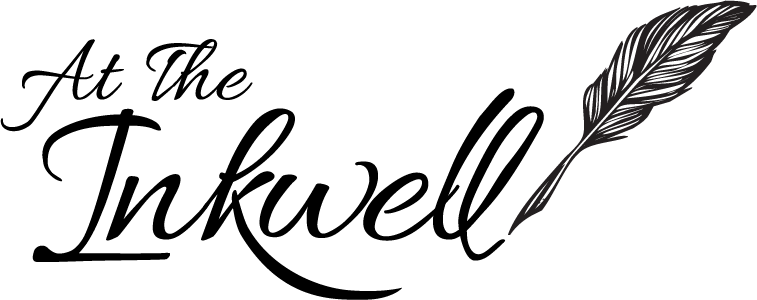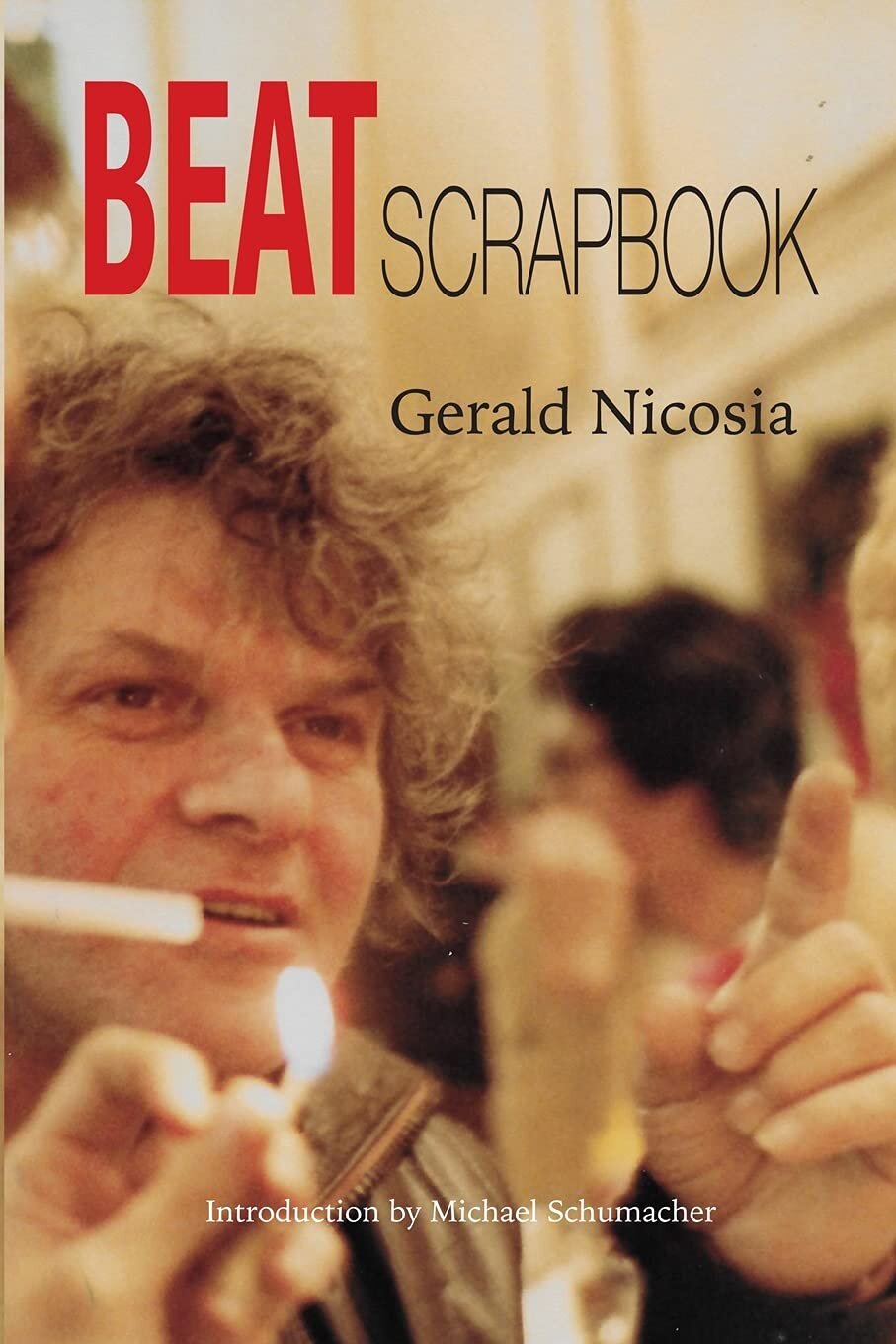Beat Scrapbook
Beat Scrapbook by Gerald Nicosia, Cool Grove Press, $19.95
The old poets gather in Vesuvio’s/ talking and taking pictures of each other/ studying the old photos on the wall/ and remembering people who are dead
Next month will mark my sixth anniversary as a reviewer for At The Inkwell. I must confess that of all the books I’ve reviewed during that time, I was most excited to read BEAT Scrapbook. Like other millennials, the Beat generation greatly influenced my youth. As a teenager in small-town Idaho, I longed to escape on a Kerouacian road trip of continental dimensions. As a young adult who had attended a series of strict Lutheran schools, I relished the sexual freedom I found in Ginsberg’s verse. As a curious fellow surrounded by a Mormon culture that shunned all drugs including caffeine, I found the intoxicating adventures of William S. Burroughs intriguing. In BEAT Scrapbook, Gerald Nicosia records a literary movement with a legacy that is far deeper and wider than the considerable accomplishments of these three men.
There were a lot of other Beat writers besides the aforementioned literary lights. Many are also aware of Lawrence Ferlinghetti, Bob Kaufman, Gary Snyder, Gregory Corso, Amiri Baraka, and Charles Bukowski (though I do feel inclined to mention that there is some argument as to whether Bukowski should be included among the Beats). But for some readers, this book will serve as an introduction to other vital Beat voices. There is Tony Scibella, with his “voice of war, voice of peace.” There is Jack Micheline, “the most politically incorrect person/ this side of Rush Limbaugh.” There is Jan Kerouac (daughter of Jack) who was so loved that “the nurses at the hospital fed her for free.” There is David Meltzer who “scorns anyone making/ poetry for money.” The list goes on, Nicosia chronicling so many complex lives with compassionate detail.
In addition to a poet, Nicosia is an acclaimed biographer. Therefore, this book also contains myriad anecdotes from the lives of the major figures in the Beat pantheon. He describes Gregory Corso threatening a bartender and getting kicked out of the legendary City Lights Bookstore. Lawrence Ferlinghetti shares jokes about maple syrup with Nicosia’s mother. Bob Kaufman is remembered with his “jaunty beret and serape.” Jack Kerouac flirts with death by laying his body down in front of a group of cars about to start a drag race. This book is filled with fun tidbits for anyone with even a passing interest in the Beats.
A majority of the poems in this collection are elegies. In BEAT Scrapbook, Nicosia writes fitting tributes respectful of each writer’s oeuvre. As he writes of friends and compatriots who have died, this book describes that loss and the bittersweet passage of time. There is also a theme of ghosts running through these poems. As Nicosia visits Kerouac’s hometown of Lowell, Massachusetts he feels the writer’s presence there “because even ghosts/ have to have a home.” More than a series of commemorations for individual lives, this book is an elegiac text for places “filled with dusty shelves/ stacks of dusty manuscripts/ and ghosts I don’t even know.”
What really stood out to me as I was reading BEAT Scrapbook was the sense of community felt between all of these writers. Nicosia recounts a San Francisco of “the North Beach poets/ fueled by endless cappuccinos/ and the dream of the unknown.” The book seemed to describe a time when you might start your evening by hearing Bob Kaufman reciting poetry at a café, grab dinner at a restaurant that Gregory Corso is getting thrown out of, head to a bar where Jack Mueller is drinking scotch, and wake up the next morning to a pancake breakfast being served to you by Lawrence Ferlinghetti. This is obviously a bit of an exaggeration but the comradery amongst these writers and the immediacy of their literary cause is worth recording. Thankfully, Gerald Nicosia has done just that.
Benjamin Schmitt
An author of three books, most recently Soundtrack to a Fleeting Masculinity, Benjamin’s poems have appeared or are forthcoming in Sojourners, Antioch Review, The Good Men Project, Hobart, Columbia Review,and elsewhere. A co-founder of Pacifica Writers’ Workshop, he has also written articles for The Seattle Times and At The Inkwell. He lives in Seattle with his wife and children.


